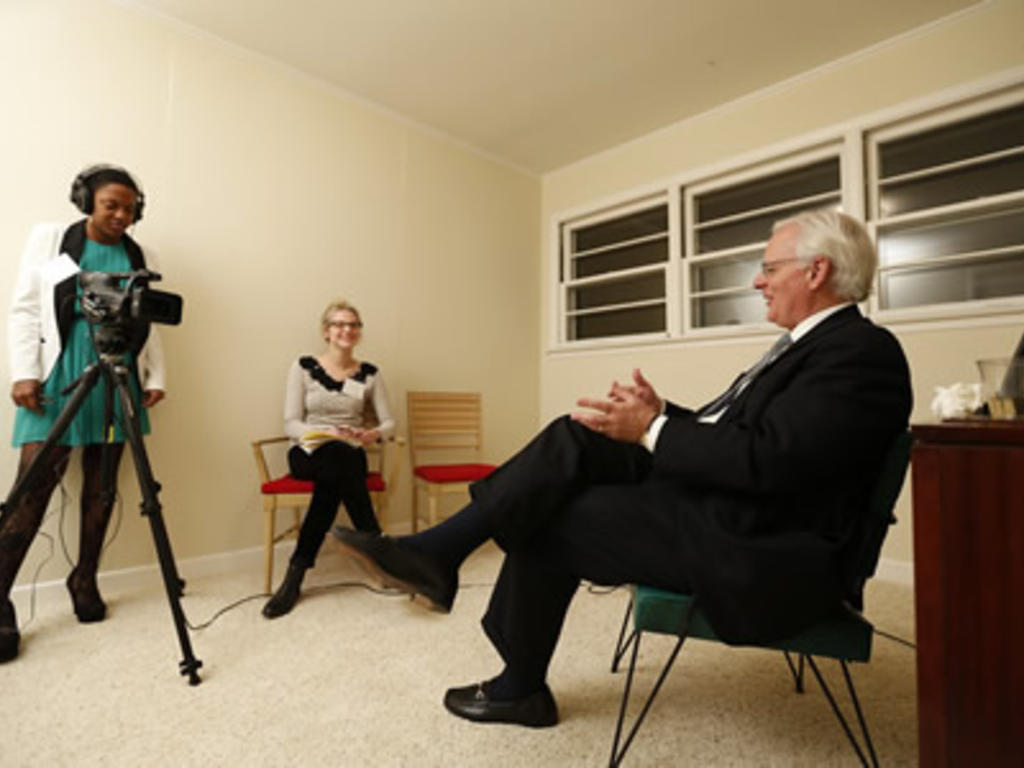Although Elvis Presley is no longer living, stories of his days in one Memphis neighborhood are being preserved thanks to the efforts of Rhodes students.
Recently, Rhodes’ Mike Curb Institute for Music and Crossroads to Freedom reunited some of Elvis’ former neighbors, and fellows archived the neighbors’ memories of his rise to fame.
The reunion was held at 1034 Audubon Drive, Elvis’ first house in Memphis that he purchased in the 1950s. Music mogul Mike Curb bought the house in 2006, and it became a part of the Mike Curb Institute for Music he created at Rhodes.
The 1956-57 neighbors, many who had never seen the inside of the famous home, excitedly reconnected with each other, munching on Elvis’ favorite fried peanut butter and banana sandwiches while reminiscing about the days when motorcycles and eager fans would line their street, hoping for a glimpse of the King of Rock ‘n’ Roll.
Crossroads and Curb fellows set up recording devices in two rooms of the home and conducted private interviews with the neighbors, who excitedly told of the times when Elvis rode down the street on horseback. One neighbor recalled answering her door to find Elvis holding her unconscious son after he was knocked out by a falling brick near the Elvis house.
The reunion of neighbors is a part of the Curb Institute’s larger goal to preserve the distinct musical traditions of the South along with the Crossroads’ ongoing efforts to connect the world with Memphis history through its public archive. Both programs have provided Rhodes students with invaluable career preparation through opportunities unique to Memphis.
“By being at a liberal arts school like Rhodes, you can take very disconnected interests that you have and bring them together to create a more well-rounded history,” says Grace Hicks ’14, a religious studies major.
“I’m getting a lot of good experience, not just setting up the technical stuff but also interacting with people on a professional basis,” adds Sophie Osella ’14, a philosophy major who aspires to make documentaries. “This program has taught me many of the skills that people in that field need.”
At the time Elvis lived at the Audubon address, he was transitioning from a regionally interesting musician to an international star, according to Curb Institute Director John Bass. “The stories of Elvis’ Audubon Drive neighbors provide unique insight to this transition,” he says, “It’s a study of Memphis at the time.”
Other Rhodes fellows who interviewed Elvis’ neighbors during the reunion include:
Cuyler Hines ’14
Gayle Hughes ’13
Anne Rhynes ’13
Michael Todd ’13
Molly Whitehorn ’15
(information compiled by Rhodes Student Associate Caroline Ponseti ’15 and photos by Justin Fox Burks)
